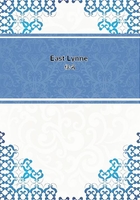
第187章
"You and I have both been deeply wronged by him, Mr. Carlyle, but I brought my wrong upon myself, you did not. My sister, Blanche, whom he had cruelly treated--and if I speak of it, I only speak of what is known to the world--warned me against him. Mrs. Levison, his grandmother, that ancient lady who must now be bordering upon ninety, she warned me. The night before my wedding day, she came on purpose to tell me that if I married Francis Levison I should rue it for life.
There was yet time to retract she said. Yes; there would have been time; but there was no /will/. I would not listen to either. I was led away by vanity, by folly, by something worse--the triumphing over my own sister. Poor Blanche! But which has the best of the bargain now, she or I? And I have a child," she continued, dropping her voice, "a boy who inherits his father's name. Mr. Carlyle, will they /condemn/ him?"
"Nothing, as yet, is positively proved against him," replied Mr. Carlyle, compassionating the unhappy lady.
"If I could but get a divorce!" she passionately uttered, apparently losing all self-control. "I might have got one, over and over again, since we married, but there would have been the /expose/ and the scandal. If I could but change my child's name! Tell me--does any chance of redress remain for me?"
There was none, and Mr. Carlyle did not attempt to speak of any. He offered a few kind words of sympathy, very generally expressed, and then prepared to go out. She moved, and stood in his way.
"You will not leave until you have given me the particulars! I pray you, do not! I came trustingly to you, hoping to know them."
"I am waited for, to keep an important engagement," he answered. "And were my time at liberty, I should decline to tell them to you, on my own account, as well as on yours. Lay not discourtesy to my charge, Lady Levison. Were I to speak of the man, even to you, his name would blister my lips."
"In every word of hate spoken by you I would sympathize; every contemptuous expression of scorn, cast upon him from your heart, I would join in, tenfold."
Barbara was shocked. "He is your husband, after all," she took leave to whisper.
"My husband!" broke forth Lady Levison, in agitation, seemingly. "Yes! there's the wrong. Why did he, knowing what he was, delude me into becoming his wife? You ought to feel for me, Mrs. Carlyle; and you do feel for me, for you are a wife and mother. How dare these base men marry--take to themselves an innocent, inexperienced girl, vowing, before God, to love and honor and cherish her? Were not his other sins impediment enough but he must have crime, also, and woo me! He has done me deep and irredeemable wrong, and has entailed upon his child an inheritance of shame. What had he or I done to deserve it, I ask?"
Barbara felt half frightened at her vehemence; and Barbara might be thankful not to understand it. All her native gentleness, all her reticence of feeling, as a wife and a gentlewoman, had been goaded out of her. The process had been going on for some time, but this last revelation was the crowning point; and Alice, Lady Levison, turned round upon the world in her helpless resentment, as any poor wife, working in a garret, might have done. There are certain wrongs which bring out human nature in the high-born, as well as in the low. "Still he is your husband," was all Barbara could, with deprecation, again plead.
"He made himself my husband by deceit, and I will throw him off in the face of day," returned Lady Levison. "There is no moral obligation why I should not. He has worked ill and ruin--ill and ruin upon me and my child, and the world shall never be allowed to think I have borne my share in it. How was it you kept your hands off him, when he reappeared, to brave you, in West Lynne?" she added, in a changed tone, turning to Mr. Carlyle.
"I cannot tell. I was a marvel oftentimes to myself."